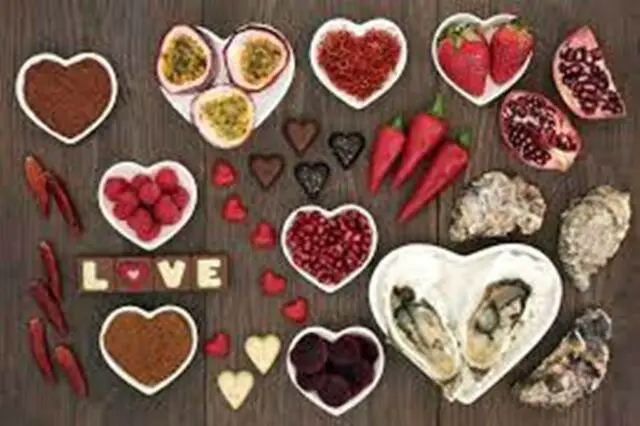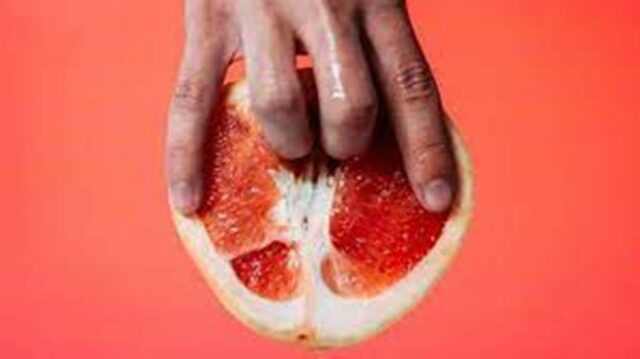Last Monday Valentine’s Day was celebrated and that means that many couples were looking for what to give or plan for that day. And with all this, it is common for the term aphrodisiacs to stand out more these days.

So since my intention is to educate and improve your sexual lives, I am going to explain about aphrodisiacs. And I will end with a suggestion to plan your romantic day, or any other day really.
Defining what aphrodisiacs are
An aphrodisiac is defined as “a substance that excites or increases sexual desire. The term derives from the Greek goddess of love, Aphrodite, related to fertility. This is why many foods are believed to be aphrodisiacs: because of their similarity to sexual organs, as is the case with oysters, caviar, strawberries, asparagus, peaches, plums (incarnate color, juicy and smooth texture).
The problem in the definition of an aphrodisiac is the use of the words “sexual desire”. Sexual desire is influenced by biological, psychological, social, emotional, and physiological factors. For example: seeing someone who attracts us, being relaxed and energetic, feeling confident and not having stress are factors that positively affect sexual desire. Therefore, there is not a single thing that we can ingest that immediately causes us to have sexual desire.
Perhaps many are thinking: But what about Viagra? Viagra does not produce desire. The pill facilitates an erection or rather maintains it. But if there is no visual, physical, or psychological arousal, the pill simply won’t have any effect. Additionally, there is not a single scientific study that shows that aphrodisiacs increase sexual desire.

BUT there is evidence of foods with properties that have physiological effects associated with sexual performance and function. For example, when the heart rate increases, there is a release of serotonin, it helps to dilate blood vessels, increases blood flow, has relaxing or energizing effects, or stimulates the nervous system. Specifically, they enhance energy, health and function, not libido.
I would give another definition to aphrodisiacs: “Foods or substances, which according to their nutritional properties can enhance or stimulate the physiological response associated with our sexual performance”. Yes; this definition is a bit long. But what should remain is nothing more than understanding aphrodisiacs as enhancers or assistants of our sexual function and not of our libido.
Why do some people claim that they do work?
Well, simply, because of the placebo effect. Previously, I mentioned the importance of the psycho-emotional factor in sexual desire and the most powerful sexual organ is our brain, so if we believe that something is going to increase our “desire” then possibly it will.
So if we are planning a romantic night where we have already built up some anticipation, we’ll dress up, carve out the time for dinner or the entire night, and plan on having a plate of oysters with champagne or chocolate-covered strawberries. This is because we believe that those foods are going to turn on our desire and we also add alcohol that relaxes us a little bit, since that food most likely has its desired effect.
That said, we do have the ability to create our own aphrodisiacs. It can be anything, as long as the intake of that food is associated with sexual pleasure and by repetition we create the idea in our heads that when I eat such a thing, my sexual desire increases.
My proposal
In line with the theme of food and sexuality, my proposal is that instead of following the tradition of going to a restaurant for dinner or buying (unhealthy) food that will leave you full and tired, that is, with no sexual desire, take the opportunity to prepare something together or creatively incorporate certain foods, in bed (or wherever you want to do it).
Whether it’s cooking together or for someone, integrating food into sexual activity, or preparing “snacks” to have on hand, it helps us put several things into practice. Planning something together or for someone first creates anticipation (what I define as foreplay), and this anticipation increases our desire. Whether it is the time we cook, or while we get ready, go to the supermarket, or whatever we do thinking about what can happen next, we already enter that erotic energy and this is key to maintaining desire.
Communication is fundamental. So asking if we would like something salty or sweet, if we prefer something spicy, if we like certain smells or textures, etc., to either look for a recipe or ask while cooking, is a good exercise for practice communicating, which is then made easier by having to communicate in bed.
Increasing pleasure does not mean learning more tricks. If not being more present in our bodies, and paying attention to our senses increases our ability to feel pleasure.
Therefore, by cooking we can stimulate the sense of taste, touch, smell, and sight. If we remove the sense of sight, we enhance the other senses, so feeding our partner, passing some food through the body, smelling something that provokes us, even passing something by mouth can be very exciting.
Be creative and dare to explore how food can be an excellent ally for both health and sexual pleasure. If you are interested in knowing more or possibly participating in an event or workshop to delve into this topic and have more ideas and tools, I invite you to write to my email:[email protected]

